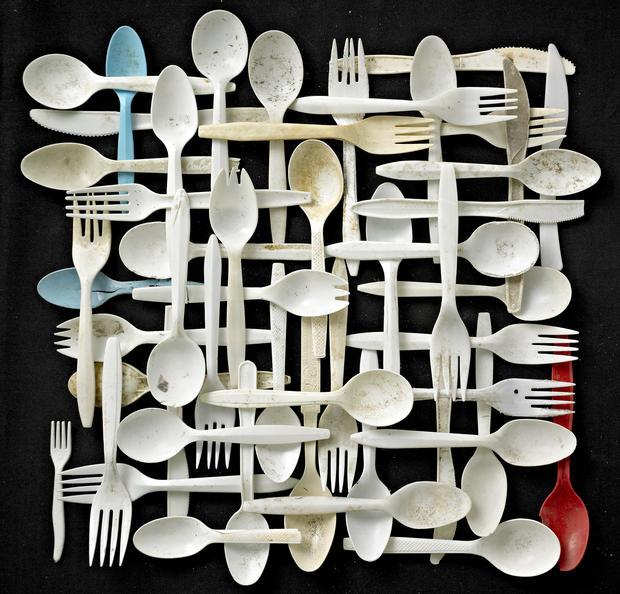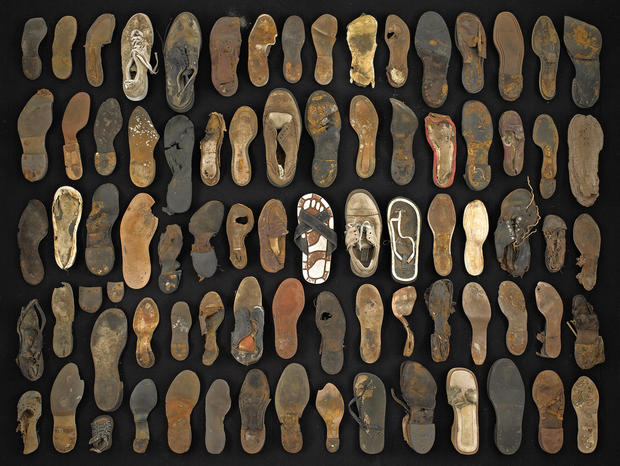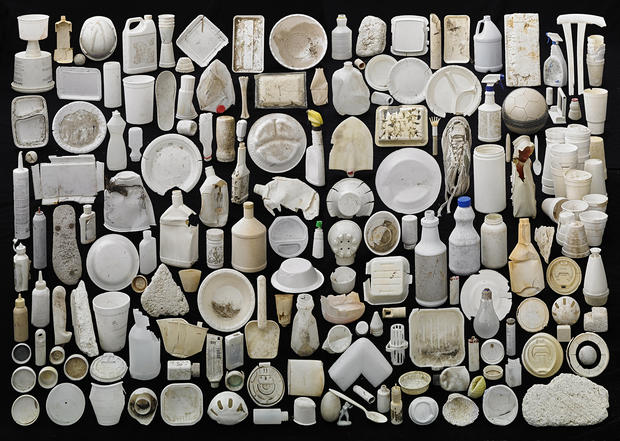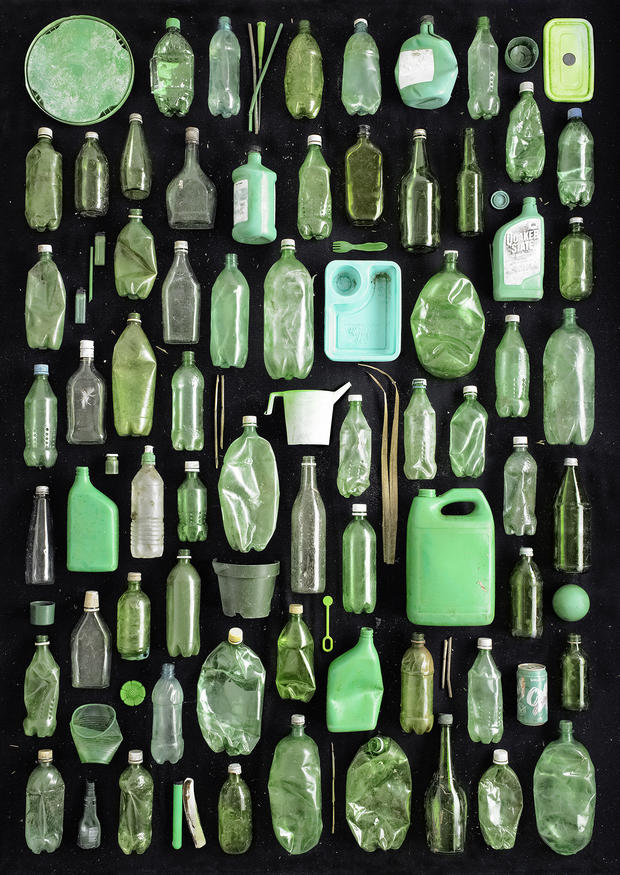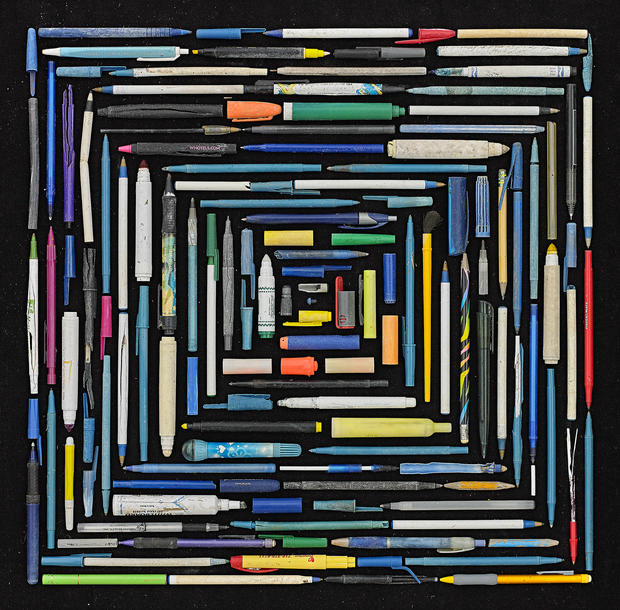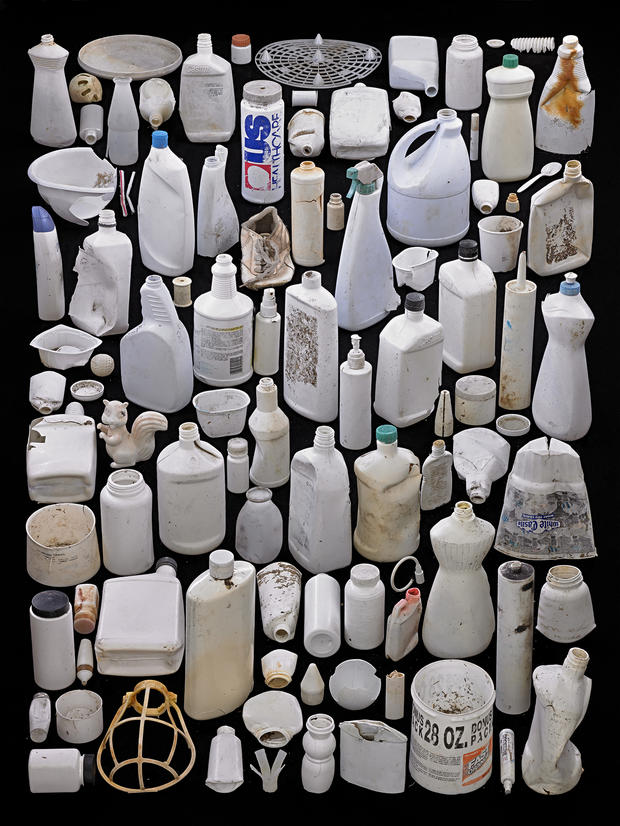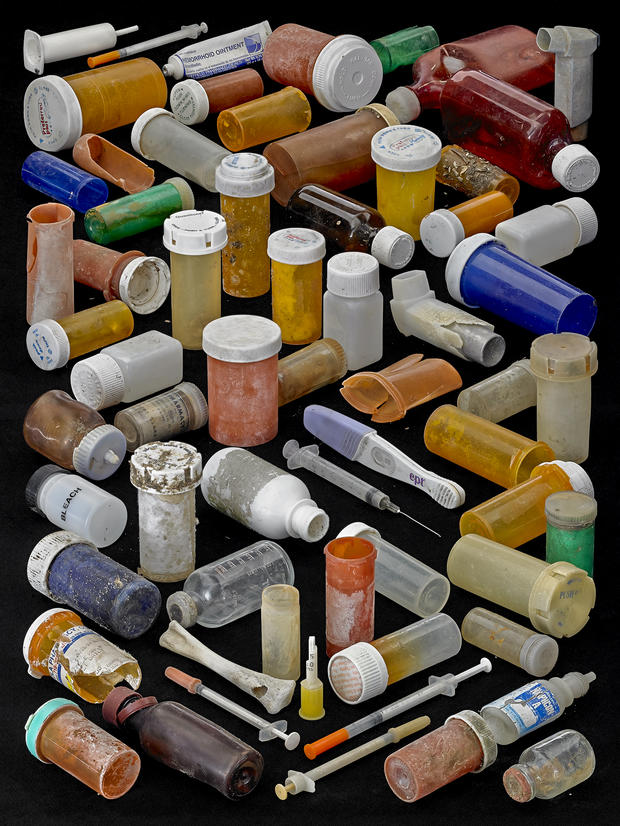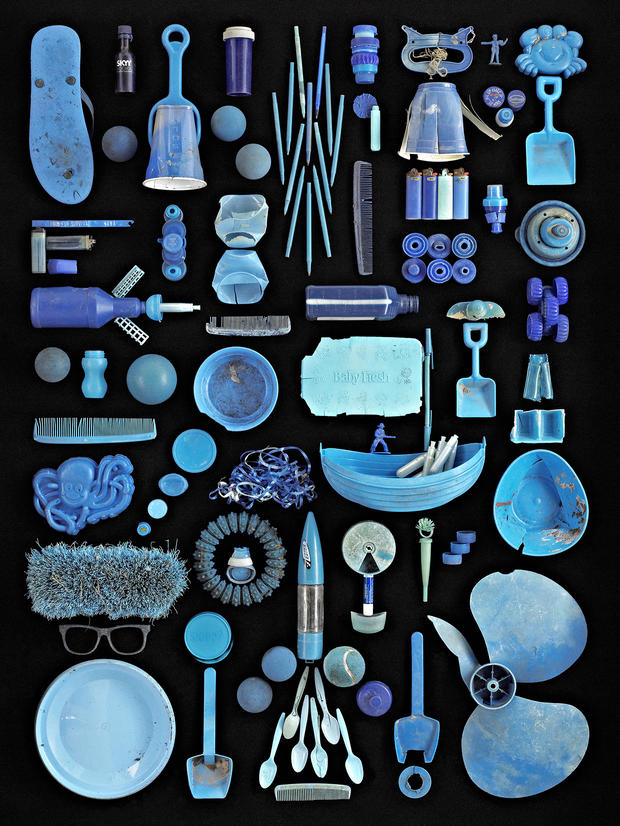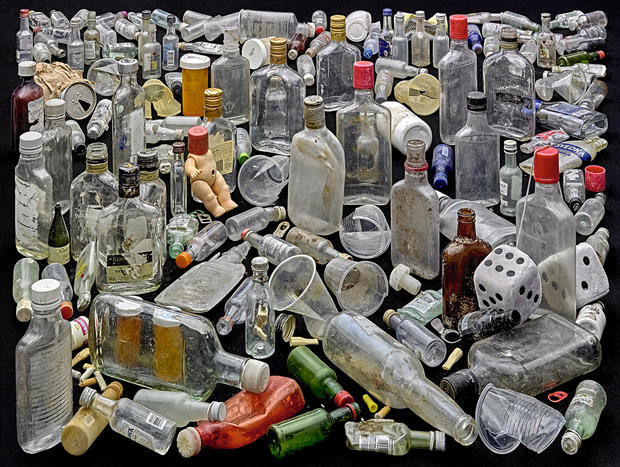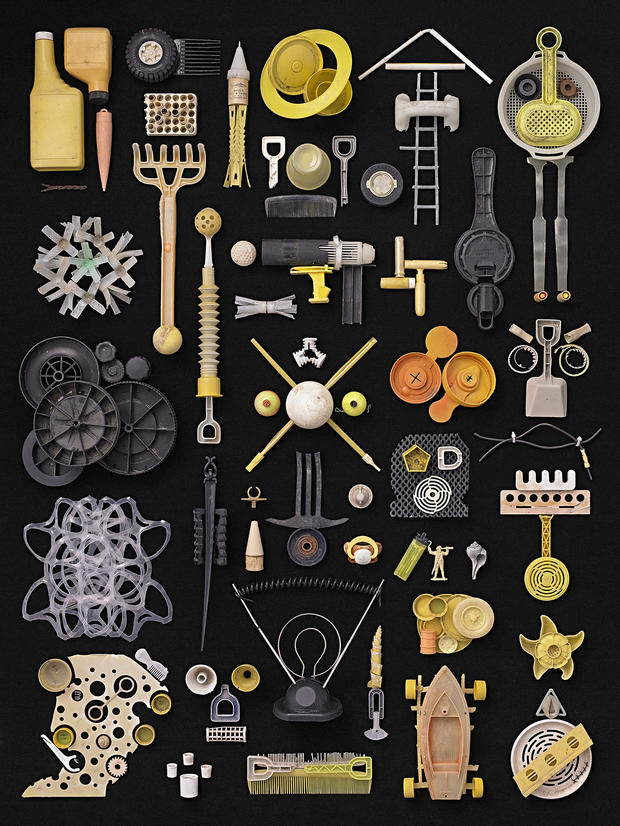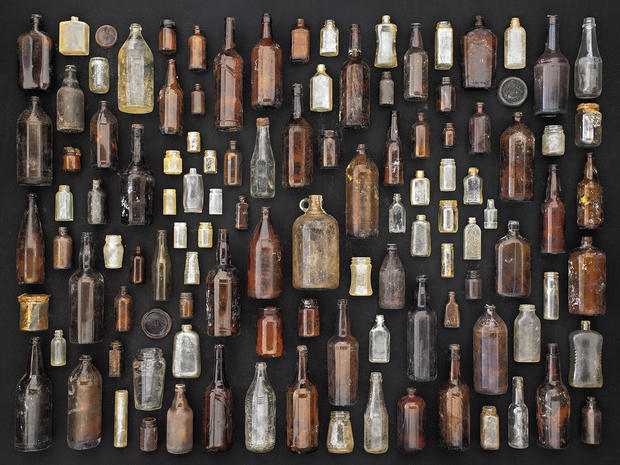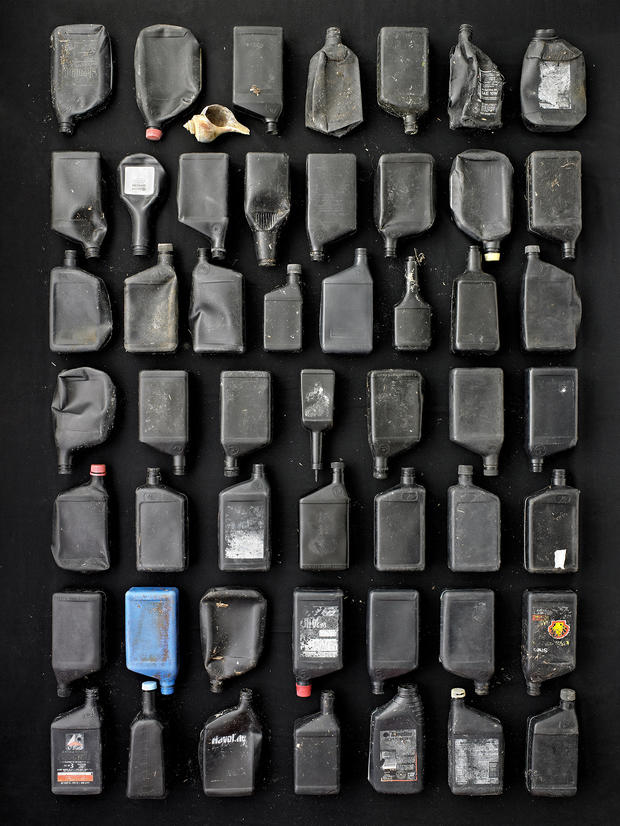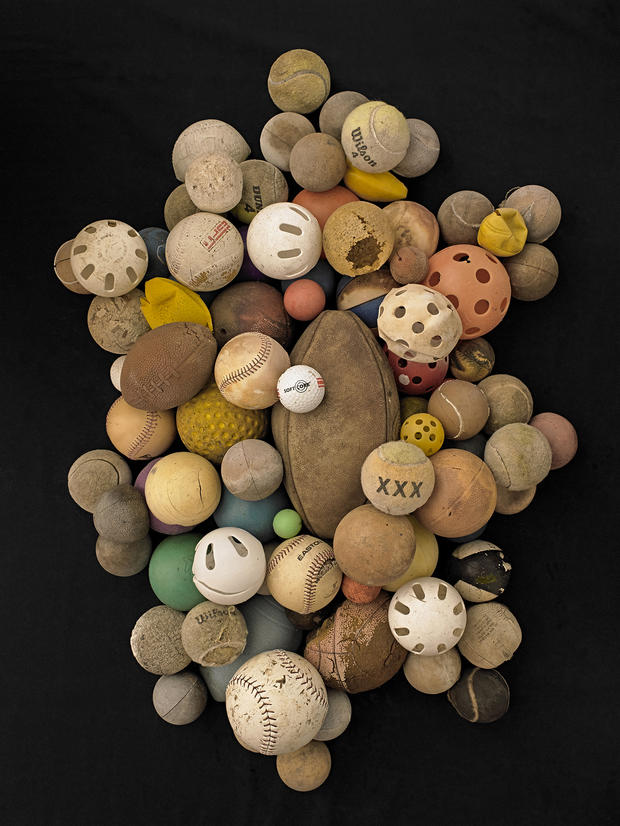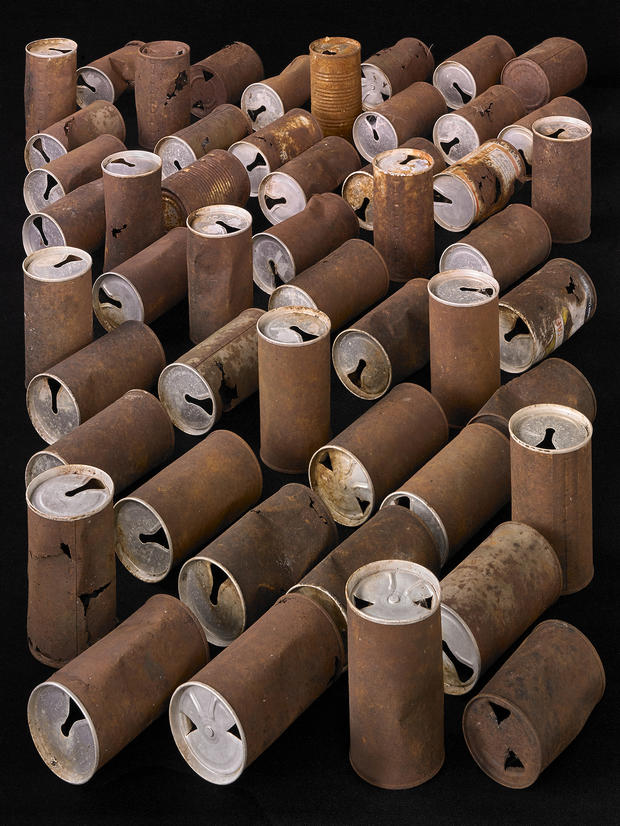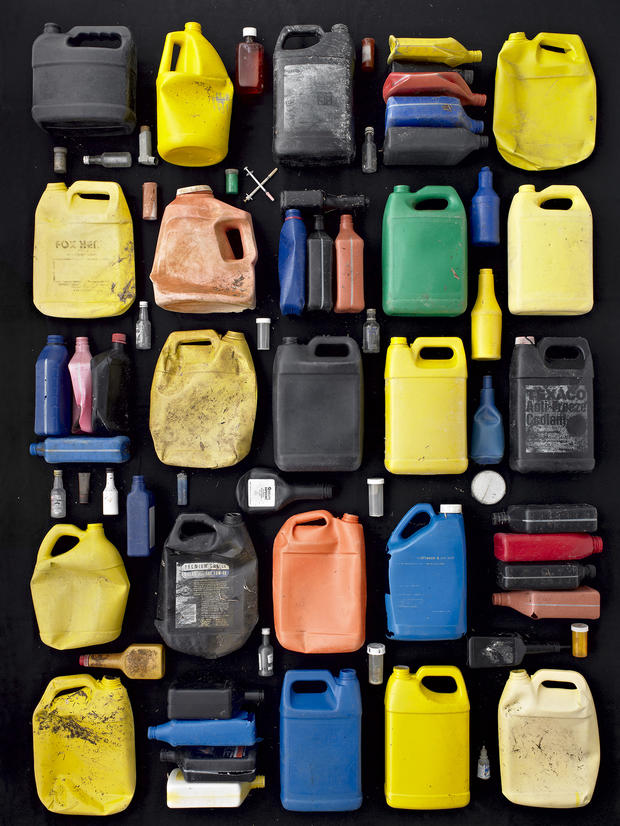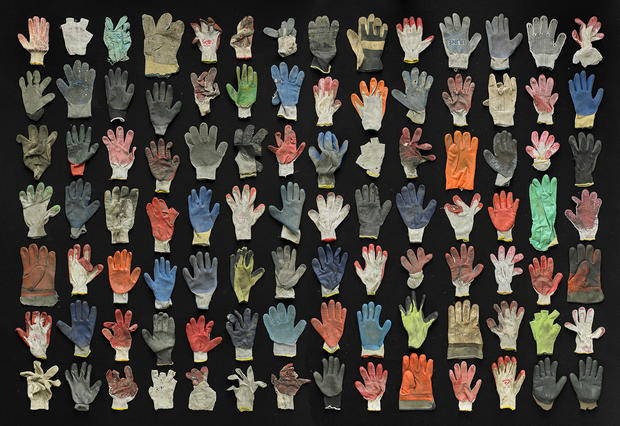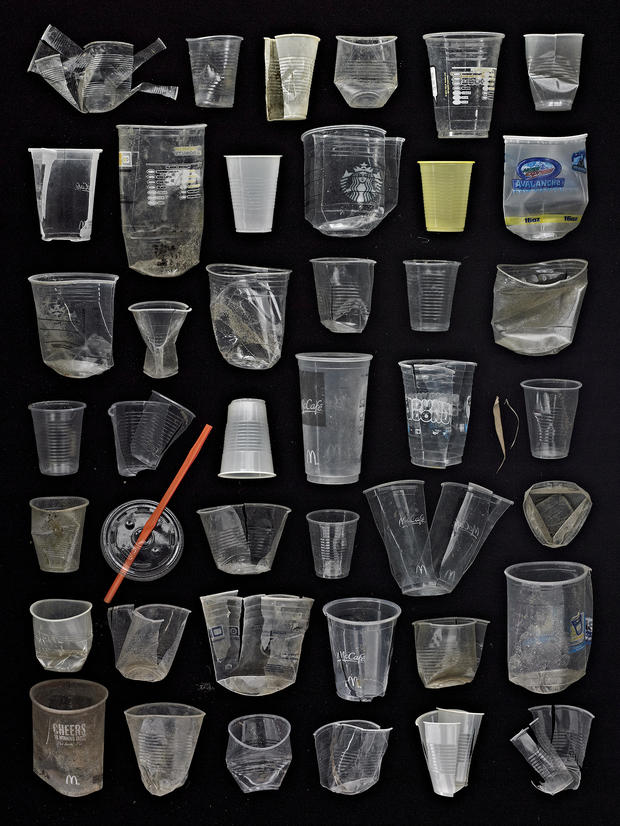"Found in Nature": The language of trash
Photographer Barry Rosenthal has found a unique way to tell the story of the damage humans are doing to the Earth's oceans -- by collecting thousands of pieces of trash scooped up from the coastal areas of New York harbor and arranging them into intriguing works of fine art for his "Found in Nature" series.
Though his intent, initially, wasn't political -- he describes his collecting as an addiction -- it certainly turned into a powerful statement that makes the viewer ponder the "sheer quantity of trash" we produce and throw away.
Article: Ocean trash becomes photographer's artistic statement
"Forks Knives Spoons"
Forks knives spoons, found objects collected from New York Harbor, Brooklyn, New York City, arranged, collections.
By CBSNews.com Senior Photo Editor Radhika Chalasani
"The Soles"
Rosenthal says, "I feel like I discovered a certain language I can use to express some of the choices we make... through trash."
The photographer's favorite hunting ground is Floyd Bennett Field in Brooklyn, where quite a bit of trash washes up.
Once he feels he has enough to work with, it can take Rosenthal one month to create each photo. He must arrange, curate, photograph until the piece is fine-tuned to perfection.
"The Soles" - 2013
"The Wall"
"The hard part of what I do is having large collections of very similar trash," explains the photographer. His collections can take years to acquire before he attempts to create a piece.
"The Wall" - 2015
White foam containers, found objects collected from New York Harbor, Brooklyn, fast food containers, arranged, collections
"Green Containers"
The more specific each piece is in isolating objects by color the more the work "heightens how much trash is out there," believes Rosenthal.
"Green Containers" - 2012
Green plastic containers, bottles and found objects collected from New York Harbor, Brooklyn, arranged, collections
"Pens"
After 25 years as a commercial photographer, his coastal sojourns helped him escape the studio.
He originally went in search of botanical pictures of common plants and weeds. Along the way, on an outing to the Jersey Shore, he found colorful plastic items and realized he was visually attracted to the trash.
"Pens"
Pens, pencils, markers and found objects collected from New York Harbor, Brooklyn, arranged, collections
"Plastic Puzzle"
"The objects had gone through a metamorphosis. Gone were the labels and logos, these objects were aged by the elements. Clearly they didn't belong where I found them," says Rosenthal.
"Plastic Puzzle" - 2013
White plastic bottles on a black background
"No Vanishing Point"
Initially, the photographer worked outdoors in nature with a small portable studio, quickly making miniature collages.
When he became a resident artist at Chashama five years ago, Rosenthal finally had a large studio to work in at Brooklyn Army Terminal. That allowed his work to transition from small collages to large collections.
"No Vanishing Point" - 2013
Prescription bottles, syringes, found objects collected from New York Harbor, Brooklyn, arranged, collections,
"Blue Ocean"
Rosenthal has held onto the objects he used to create this piece titled "Blue Ocean," at times exhibiting them alongside his prints as an art installation.
"Blue Ocean" - 2013
Blue plastic objects, found objects collected from New York Harbor, Brooklyn, arranged, collections
“Choices We Make”
It was only when Rosenthal started making large scale photos of extensive collections on black backgrounds did it become clear he was making a statement about marine pollution.
"Choices We Make" - 2015
Bottles, found objects collected from New York Harbor, Brooklyn, arranged, collections, alcohol, choices we make
"The Grid”
There's an appealing aesthetic quality to the images which makes them beautiful to look at, while still making one stop and think about the environmental impact of trash.
The photographer would say that he isn't beautifying trash per se, but "re-using" it.
"The Grid" - 2014
Plastic objects, wheels, found objects collected from New York Harbor, Brooklyn, arranged, collections.
"Brown and Clear Bottles"
This piece has 140 brown and clear bottles. Showing so many objects in one photo is a statement about the quantity of trash.
"Brown and Clear Bottles" - 2013
Work Gloves, found objects collected from New York Harbor, Brooklyn, arranged, collections
"Black Oil Bottles"
Though the photographer usually holds onto most of the objects in his collection, some things he has had to get rid of -- oil bottles were too leaky and messy to keep.
"Black Oil Bottles" - 2012
50 black plastic bottles and 1 blue plastic bottle on a black background
"Balls"
Rosenthal has created nearly 30 pieces to date in this series which continues to evolve. Having amassed thousands of objects, he stores them in beer boxes, bags, and on shelves in his Brooklyn studio.
"Balls"
Tennis balls, baseballs, football, wiffle ball, found objects collected from New York Harbor, Brooklyn, arranged, collections
"Beer Cans"
Rosenthal's work has recently taken a turn with new collections of objects focusing on people's addictions such as alcohol, drugs, fast food and smoking.
There's always more to collect and reveal for the artist who describes himself as "addicted to collecting."
"Beer Cans"
Rusty beer and soda cans, found objects collected from New York Harbor, Brooklyn, arranged, collections
"Oil, Drugs and Alcohol"
"Each new piece gives me new insights into what I am creating. I judge that I am somewhere close to the middle of the project," states Rosenthal.
"Oil, Drugs and Alcohol" - 2012
"Work Gloves"
Rosenthal says there's still plenty of things he hasn't had a chance to collect or explore. He could never collect enough fishermen's gloves so he started collecting work gloves.
"Work Gloves" - 2014
Work Gloves, found objects collected from New York Harbor, Brooklyn, arranged, collections
"Clear Plastic Cups"
"Clear Plastic Cups"
Clear Plastic Cups, found objects collected from New York Harbor, Brooklyn, arranged, collections
Instagram: @barry.rosenthal
Upcoming exhibitions: Open Call: Up for Debate BRIC House Brooklyn, NY, February 5 - February 28
InLiquid Art and Design Benefit, Philadelphia, February 5 - February 6, 2016
© 2016 CBS Interactive Inc. All Rights Reserved.
